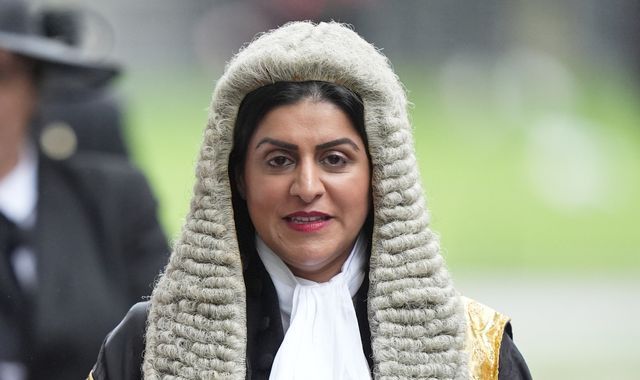On Air Now
Gold Radio Drive with Kirsty Gallacher 4pm - 7pm
30 March 2025, 14:22 | Updated: 30 March 2025, 17:07

The government plans to change the law so it can overrule Sentencing Council guidelines following a row over "two-tier justice", Sky News understands.
The independent Sentencing Council, which sets out sentencing guidance to courts in England and Wales, has been at odds with Justice Secretary Shabana Mahmood for weeks after it updated its guidance.
It said that from April, a pre-sentence report, the results of which are taken into account when considering a criminal's sentence, will "usually be necessary" before handing out punishment for someone from an ethnic, cultural or faith minority, alongside other groups such as young adults aged 18 to 25, women and pregnant women.
Conservative shadow justice minister Robert Jenrick called the guidance "two-tier justice" and said there was "blatant bias" against Christians and straight white men, as he said it would make "a custodial sentence less likely for those from an ethnic minority, cultural minority, and/or faith minority community".
Ms Mahmood had called on the Sentencing Council to reverse the guidance, but it refused, which Sir Keir Starmer said he was "disappointed" with, and the justice secretary called "unacceptable".
Before the weekend, Sir Keir said "all options are on the table" over how the government might respond.
But sources have now told Sky News the Ministry of Justice plans to legislate at the "earliest opportunity" to be able to overrule sentencing guidelines.
Ministers could introduce the legislation as early as Monday so they can "push it through parliament", so the current guidelines can be changed quickly.
Until the law is changed so the government can dismiss the Sentencing Council guidelines, the body can plough ahead with the changes as it is independent of the state.
Read more:
Sentencing Council rejects minister's call for guidance rethink
What are pre-sentence reports and why the controversy?
In reply to Ms Mahmood's letter calling for a reversal, the Sentencing Council's chair, Lord Justice William Davis, said on Friday that the reforms reflect evidence of disparities in sentencing outcomes, disadvantages faced within the criminal justice system and complexities in the circumstances of individual offenders.
He said pre-sentence reports allow judges to be "better equipped" to "avoid a difference in outcome based on ethnicity".
"The cohort of ethnic, cultural and faith minority groups may be a cohort about which judges and magistrates are less well informed," he added.
Sky News has contacted the Sentencing Council for a comment on the potential law changes.
(c) Sky News 2025: 'Two-tier justice' row: Government plans to change law to overrule Sentencing Council